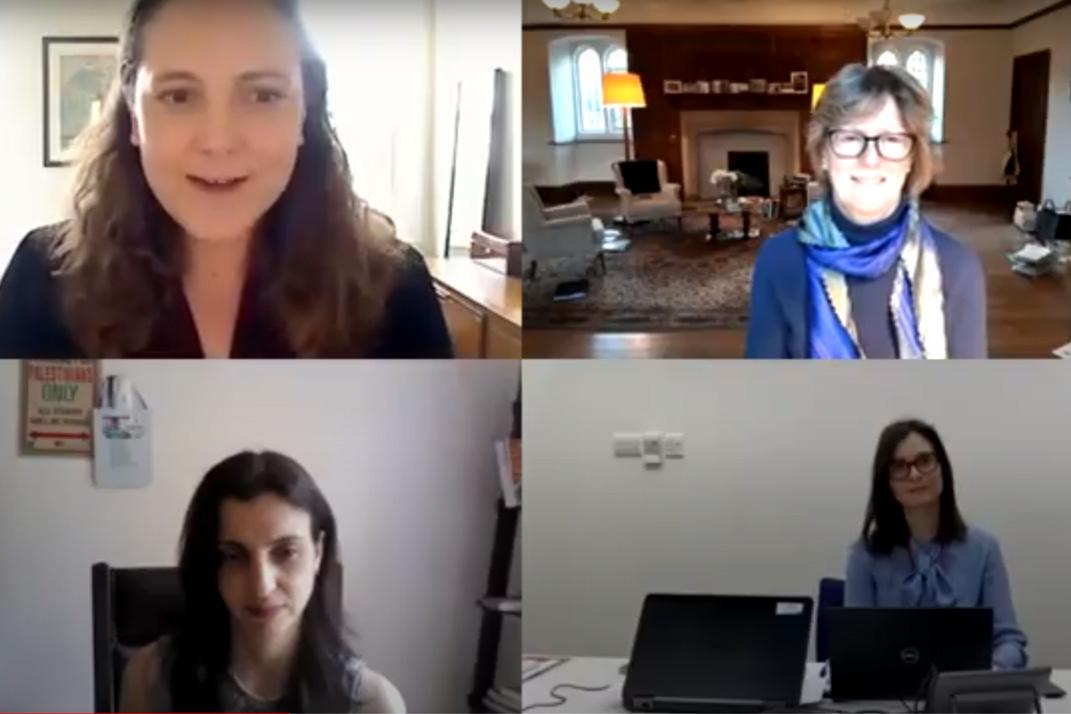To highlight the essential role women are playing in progressing crucial COVID-19 research, the Permanent Mission of Greece to the UN, the Permanent Mission of Lebanon, with the support of the Permanent Mission of the UK and UN Women, staged an online event called ‘The Hypatia Debate: Women Scientists in the fight against COVID-19’.
Three prominent scientists were invited as panellists to explore the unique role of women researchers in tackling the pandemic. The Pirbright Institute’s very own Dr Eleni Vatzia was selected to join Professor Dame Sally Davies (UK Special Envoy on Antimicrobial Resistance) and Dr Hana El Sahly (Associate Professor of molecular virology, Baylor College of Medicine in Houston) on the panel.
Dr Vatzia is a postdoctoral scientist in Pirbright’s Mucosal Immunology group who has been researching the immune responses to influenza infection and vaccination using the same ChAdOx viral vector platform as in the Oxford AstraZeneca COVID-19 vaccine in collaboration with Professor Sarah Gilbert’s team. During the lively discussions, Dr Vatzia explained the importance of having supervisors that are supportive of women in science, referencing her own experience in Pirbright’s Mucosal Immunology group.
Dr Vatzia said: “I am lucky that my supervisor is very passionate about women in research and having women in higher positions such as group leaders and heads of programme. I am very happy that I am in a diverse group as it enhances the creativity and innovation in research projects.
“For young women that would like to be in research I would really like to advise them to be very confident in themselves and have faith in their work. It is important to find a supportive network, which can sometimes be very difficult in a male dominated field. However if you have a supportive supervisor or mentor it can really help your career from the very beginning.”
Pirbright’s COVID-19 research could not have proceeded without the knowledge, skills and experience of our female scientists. Their work has contributed to key insights regarding the immune responses generated by three different COVID-19 vaccines, led to a better understanding of where the virus could have originated from and identified which animals the virus may be able to infect.
They have also taken leading roles in supporting the UK diagnostic effort through providing training for COVID-19 diagnostic staff and volunteering in seven Public Health England testing sites across the country. For more information about our work on COVID-19, visit our Coronavirus Hub.
